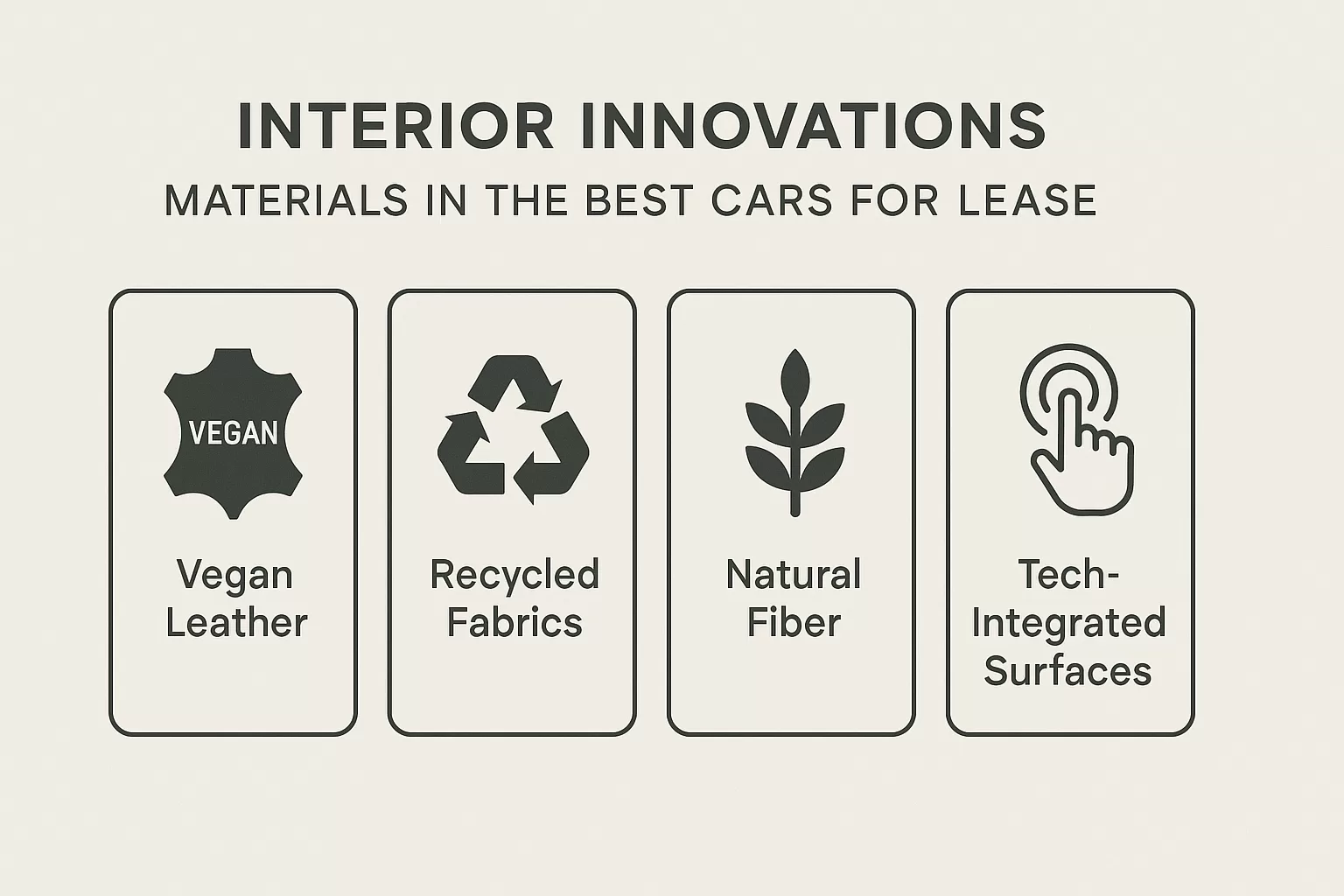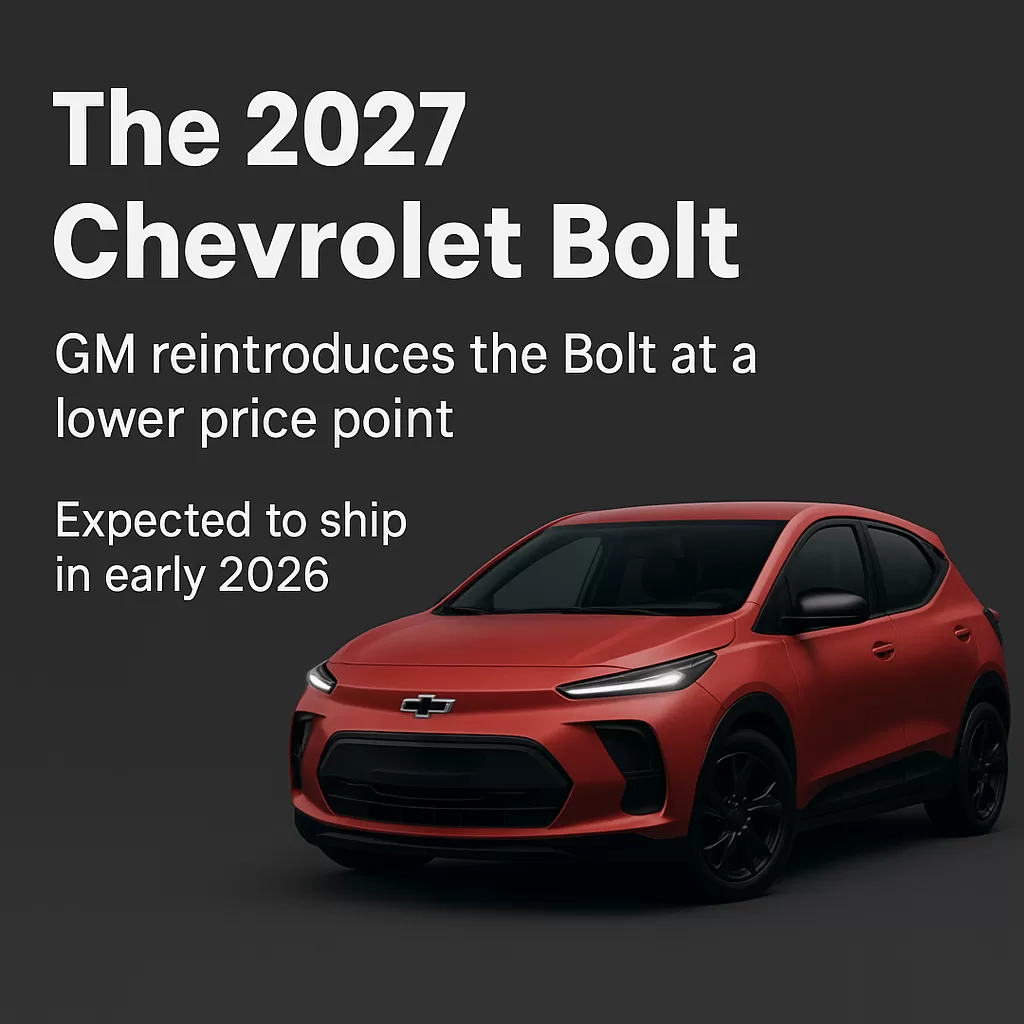For car lessees, comfort, aesthetics, and durability are just as critical as performance and price. Over the past five years, the automotive industry has seen a transformative shift in the materials used inside vehicles, driven by sustainability trends, tech integration, and consumer preferences. Today’s best cars for lease not only offer superior performance but also feature interior materials that enhance the driving experience in terms of luxury, practicality, and environmental consciousness.
This article explores the evolution of car interior materials from 2020 to 2025, highlighting current innovations, industry trends, and the technologies influencing the materials found in the top leased vehicles today.
The Evolution of Car Interior Materials (2020–2025)
1. From Traditional to Tech-Enhanced
Historically, car interiors relied heavily on:
-
Natural leather
-
Plastics and polyurethane
-
Wood trims (for luxury vehicles)
By 2023 and beyond, carmakers began moving away from animal-based and oil-derived materials, opting instead for recyclable, synthetic, and plant-based options. Automakers are now focused on:
-
Reducing weight
-
Improving thermal and acoustic insulation
-
Enhancing sensory appeal (touch and smell)
-
Aligning with ESG (Environmental, Social, Governance) standards
According to McKinsey & Company’s Auto Trends 2024, 58% of OEMs have made commitments to sustainable interiors, targeting 50–90% recyclability in new models.
Key Interior Materials Used in Today’s Best Cars for Lease
2. Vegan Leather and Synthetic Alternatives
One of the most notable changes in recent years is the widespread adoption of vegan leather, also known as synthetic leather, leatherette, or eco-leather.
Popular Brands Using It:
-
Tesla: Fully vegan interiors since 2020
-
Volvo: All EV models now use leather-free interiors
-
BMW & Mercedes-Benz: Offer synthetic alternatives in most lease-friendly trims
Benefits:
-
Lower cost than natural leather
-
Easier to clean and maintain
-
Reduces animal-product dependency
According to Allied Market Research (2024), the global vegan leather market is projected to hit $66.3 billion by 2027, driven in part by its application in the auto industry.
3. Recycled PET (Polyethylene Terephthalate) Fabrics
Recycled plastic bottles are now commonly used to create durable seat fabrics and carpets in mid-range and high-end lease vehicles.
Examples:
-
Ford: Uses REPREVE® fiber made from recycled PET bottles in the Ford Escape and Focus
-
Hyundai: IONIQ 5 features recycled plastics and bio-based PET blends
-
BMW i Series: Features Seaqual yarns made from marine plastic waste
On average, each vehicle contains material from 45–100 recycled bottles, according to Ford’s sustainability report (2023).
4. Natural Fiber Blends (Wool, Bamboo, Cork, Hemp)
Luxury and eco-conscious brands are embracing natural materials as tactile, breathable, and sustainable alternatives to synthetic blends.
Key Applications:
-
Mini Cooper SE: Features wool-blend upholstery
-
Mazda MX-30: Uses cork (a nod to Mazda’s origins) for center consoles
-
Toyota Prius: Includes plant-based materials in its dashboard components
Natural fibers offer thermal comfort, improve air quality by reducing VOC emissions, and appeal to green-conscious lessees.
5. Alcantara and Suede-Like Materials
Alcantara, a premium synthetic suede, has become popular in sports and luxury models. It offers a soft touch, grip for performance seats, and upscale aesthetics.
Common in:
-
Audi S and RS models
-
Lexus F Sport trims
-
Porsche Macan and Taycan leases
Alcantara S.p.A reports that over 60% of premium OEMs globally use Alcantara in performance-oriented lease vehicles.
6. Infotainment & Tech-Integrated Materials
Modern leasing favorites are increasingly defined by technology embedded into surfaces:
-
Haptic feedback dashboards (Mercedes EQ series)
-
Ambient lighting woven into panel materials (BMW 7 Series)
-
Smart glass and touch-reactive trims (Lucid Air)
These materials are usually paired with soft-touch polymers and hybrid composites that balance tactile comfort with functional innovation.
Interior Material Trends by Vehicle Segment
7. Compact and Mid-Size Sedans (Best Budget Lease Options)
Leased models like the Toyota Camry, Honda Accord, and Hyundai Elantra typically include:
-
Fabric seats made from recycled polyester
-
Faux leather trims in higher trims
-
Matte plastic and brushed metal accents
These materials are cost-effective yet durable—important for high-volume lease fleets.
8. SUVs and Crossovers (Most Popular Lease Class)
Lease leaders like the Ford Escape, Kia Sportage, and Mazda CX-5 offer:
-
SofTex®, leatherette, or vegan leather seats
-
Cargo areas with washable, recycled thermoplastic liners
-
Optional suede-like or Alcantara accents in sport trims
According to Experian Automotive (2025), 57% of all new leases in the U.S. are for SUVs or crossovers—driving a surge in high-quality synthetic materials.
9. EVs and Luxury Leases
The Lucid Air, Tesla Model Y, BMW iX, and Mercedes EQS are redefining what premium, eco-conscious interiors look like.
Expect:
-
All-vegan interiors
-
Bamboo and wool seats
-
OLED-embedded dashboards
-
Advanced sound-absorbing recycled foam
J.D. Power’s 2025 report notes that 73% of EV lessees prefer non-leather interiors, citing comfort and ethical sourcing.
How Interior Materials Influence Lease Value
10. Residual Value Considerations
Interior materials affect a vehicle’s residual value, a key factor in lease pricing. Materials that resist wear and are easy to clean tend to retain more value at lease-end.
High-Value Materials:
-
Synthetic leather with stain protection
-
Durable recycled PET fabrics
-
Trim-resistant polymers
Factors Considered by Lessors:
-
Fade resistance
-
Stain and odor retention
-
Appearance after 24–36 months
ALG (Automotive Lease Guide) suggests that vehicles with synthetic leather retain 8–12% more value than those with basic cloth interiors after three years.
11. Consumer Preferences and Leasing Decisions
Interior comfort ranks as a top-three consideration for lease customers after fuel efficiency and monthly cost.
A 2024 Cox Automotive Survey showed:
-
64% of lease customers consider seat material quality
-
41% prefer vegan or non-leather options
-
33% will pay more monthly for eco-friendly interior packages
Leasing companies increasingly bundle high-quality interior features with premium trims to meet consumer expectations.
The Future of Interior Materials (2025 and Beyond)
12. Next-Gen Developments to Watch
Emerging technologies are set to redefine what’s possible inside the best cars for lease:
-
Self-healing materials: Repairs minor scratches and scuffs autonomously
-
OLED dashboard fabrics: Turn upholstery into a display
-
Biometric-reactive surfaces: Adjust comfort and lighting based on stress and heart rate
-
100% plant-based leather: Derived from pineapple, cactus, or mushroom (already in pilot by BMW and Mercedes)
Conclusion
Over the past five years, the interiors of the best cars for lease have transitioned from traditional luxury cues to modern, sustainable, and tech-forward experiences. With innovations ranging from vegan leather and recycled fabrics to smart dashboards, today’s leased vehicles provide not only function and style but also align with values like sustainability, wellness, and future readiness.
Whether you’re an individual lessee or a fleet manager, understanding these materials can help you make smarter, more durable, and future-proof leasing choices.
For any questions regarding auto leasing in New York call us at (718) 313-0044 or check our Car Lease Deals Online
Sources and References
-
McKinsey & Company – The Road to 2030: Trends Shaping the Automotive Interior Materials Market (2024)
-
Cox Automotive – 2024 Lease Consumer Insights Report
-
Ford Motor Company – Sustainability Report, 2023
-
Allied Market Research – Vegan Leather Market Forecast to 2027
-
Experian Automotive – State of the Leasing Market, Q1 2025
-
Automotive Lease Guide (ALG) – Vehicle Residual Value Rankings, 2025
***All images and text content presented on this website are created solely for educational purposes and are not intended to generate any commercial outcomes or financial gain.



